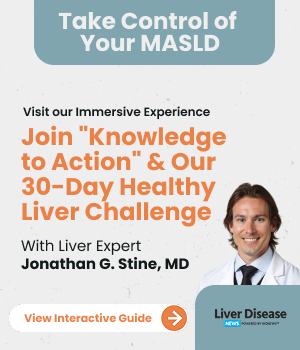GSK’s hepatitis B candidate bepirovirsen wins fast track status
New designation is based on results of B-Clear trial, early B-Sure data

The U.S. Food and Drug Administration (FDA) has granted fast track status to bepirovirsen, GlaxoSmithKline (GSK)’s candidate treatment for chronic hepatitis B (CHB), the company has announced.
Fast track status is given to investigational treatments that have the potential to fill an unmet medical need in serious health conditions. It’s intended to accelerate a therapy’s development and expedite its approval by providing its developer with more frequent meetings with the FDA and discussions about its development plan. Therapies placed on fast track also may be eligible for future designations, such as accelerated approval and priority review, if other conditions are met.
The designation was based on promising results from the completed Phase 2b B-Clear clinical trial (NCT04449029) and early data from its long-term follow-up, B-Sure (NCT04954859).
The findings support bepirovirsen as the only single agent in late stage development with the potential to result in a clinically meaningful functional cure when combined with first-line oral nucleoside/nucleotide analogues (NAs). A functional cure is defined by extremely low, or undetectable, levels of both viral DNA and proteins in the blood that can be efficiently controlled by the immune system once treatment ceases.
A Phase 3 program made up of two global twin trials — B-Well 1 (NCT05630807) and B-Well 2 (NCT05630820) — is underway to confirm these findings. Both are testing bepirovirsen against a placebo in CHB patients receiving NAs. Each may still be recruiting up to 900 adults in several countries, including Canada, but not the U.S.
CHB, which occurs when the immune system is unable to fight off the hepatitis B virus, affects nearly 300 million people worldwide. A functional cure is rarely achieved with NAs, in less than 5% of the cases after treatment is halted.
What is bepirovirsen?
Bepirovirsen, an antisense oligonucleotide (ASO) discovered by and jointly developed with Ionis Pharmaceuticals, is designed to target for destruction all hepatitis B virus’ messenger RNA (mRNA), thereby reducing the viral proteins that cause CHB. mRNA is an intermediate molecule derived from DNA that guides protein production.
In the Phase 2b B-Clear study, 457 CHB patients — 227 treated with NAs and 230 not on NAs — were randomly assigned to four different groups where they received weekly under-the-skin injections of either bepirovirsen or a placebo for up to 24 weeks (nearly six months).
In the first group, bepirovirsen was given at 300 mg during the 24 weeks. Groups 2 and 3 received the same dose for 12 weeks (about three months) followed by either 150 mg (group 2) or a placebo (group 3) for the remaining 12 weeks. Group 4 first received a placebo followed by 300 mg of bepirovirsen, each given for 12 weeks. Groups 1, 2, and 3 also received loading doses of bepirovirsen.
Results showed that 9% to 10% of patients in group 1, with or without NAs, achieved the trial’s main goal of a complete response, defined by below-detection levels of the viral protein HBsAg and viral DNA for six months after completing treatment. Patients with low viral HBsAg at the start of treatment were the most likely to benefit from bepirovirsen.
Thirteen patients on NAs and 12 not on NAs who were deemed complete responders in B-Clear enrolled in the long-term B-sure trial. This study’s main goal was to assess how long it took for patients not on NAs to lose the response and the response duration after NA cessation at three months among those who took them.
Preliminary data showed 78% of the patients not on NAs maintained a response after at least three months of follow-up within B-Sure. All three patients followed for at least nine months maintained their response, up to 18 months after bepirovirsen was stopped.
Also, 86% of the seven patients who ceased NAs after three months and were followed for at least six months in B-sure maintained the response. All four patients followed for nine months or longer, or at least six months after discontinuing NA, showed a sustained response. No participants restarted NA treatment.
Bepirovirsen is also being assessed as a potential backbone therapy within other treatment regimens for its potential in a broader CHB patient population.







